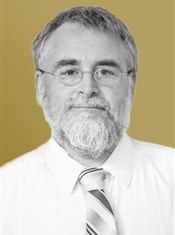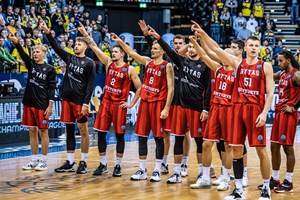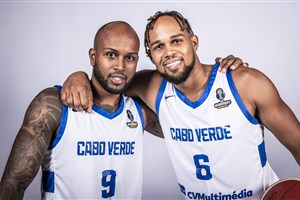
World Cup Qualifiers provide new African sheriff, Uruguayan hopeful, a young Cedar and outstanding Olek
REGENSBURG (David Hein's Eye on the Future) - And just like that the first window of the FIBA Basketball World Cup 2023 Qualifiers is done and dusted. The five days of action across the globe provided plenty of thrills and also lived up to one of the fundamental advantages of the FIBA windows. Namely more than two dozen youngsters getting a chance to shine for their national team.
The in-season breaks offer national team coaches the opportunity to invite their countries' next generation of talent to the senior team and get a taste of what big-time competition is like. And if the performances by some players born 2000 or later during the Qualifiers is any indication, it looks like world basketball is quite healthy in the long term.
Here is a breakdown of some of the top youngsters from the window by Region.
"New sheriffs" in Africa
Half of the teams in the African Qualifiers were in action with Groups A and C taking place in Benguela, Angola. And the highly-competitive action featured a trio of youngsters who really shined - Assemian Moulare of Cote d'Ivoire, Sirimane Kanoute of Mali and Nigeria big man Ugonna Kingsley Onyenso.
The 18-year-old 🐘 @assemianmoulare did not miss the chance to show his 🏀 skills on a second call-up to the Cote d'Ivoire 🇨🇮 national team!#WinForCotedivoire | #FIBAWC pic.twitter.com/y0UCEexl86
— FIBA Basketball World Cup (@FIBAWC) November 27, 2021
Moulare played the part of major contributor to the Elephants, who rose to the challenge of facing teams' best after reaching the FIBA AfroBasket 2021 Final a couple of months ago. The 18-year-old playmaker played just 4 minutes in Cote d'Ivoire's opening game - a comeback from 17 points down against Angola.
Then Moulare brought out his skillset - hitting 4 three-pointers and throwing down dunks in scoring 20 points, grabbing 7 rebounds, dishing out 3 assists, swiping 2 steals and getting 1 block against Central African Republic. He followed that with 14 points, 4 rebounds, 3 assists and 2 steals against Guinea.
Mali meanwhile are starting to see their stars of multiple youth continental titles and the spectacular FIBA U19 Basketball World Cup 2019 second-placed showing reach the men's team. The 2001-born playmaker Kanoute averaged 7.7 points, 2.3 rebounds, 2.3 assists and 2.7 steals as Mali went 2-1 in the window.
And Nigeria fans have reason to rejoice as well as 2004-born Onyenso flashed a glimpse of stardom in a short run with 4 points, 3 rebounds and 1 block in 11 minutes against Cape Verde and then 10 points, 4 rebounds and 2 blocks versus Uganda.
The performances of those young players among others in the window promoted Guinea coach Zeljko Zecevic to say: "Maybe this is the future, and these are the new sheriffs coming into town to set the new rules for the next AfroBasket. That will be a big spectacle for a lot of them. A lot of young players for Mali, a lot of young players in Cote d'Ivoire, who showed their quality and over time a new generation of basketball in Africa is coming out."
Nigeria's veteran captain Ike Diogu was very impressed with the team's young big man Onyenso.
"He's the future. Plain and simple. I'm telling you guys now. He's the future," he said. "It's gonna be his team pretty soon. It's gonna be exciting to watch."
Uruguayan hopeful Ubal
Uruguay have not played at the FIBA Basketball World Cup since 1986 in Spain, and their start on the road to 2023 was a promising one - thanks to someone playing in Spain.
The 2003-born Agustin Ubal is part of Uruguay's next generation - along with Santiago Vescovi. And the Barcelona youngster showed Uruguay fans why it's not wrong for them to be hopeful. Ubal collected 7 points, 3 rebounds and 2 assists in the first game against Colombia and then tallied 10 points, 6 rebounds, 6 assists and 3 steals as Uruguay went 2-0 in the first window.
One of Ubal's Barcelona teammates also helped his country to a big win the Americas window. Yahir Bonilla - also 2003-born - picked up 3 points, 2 rebounds and 3 assists in Mexico's surprise win over the United States.
Two other Spain-based youngsters played well in the FIBA window in the Americas. Chile's Ignacio Arroyo, playing at Estudiantes Madrid, had 10.5 points, 2.0 rebounds, 2.0 assists and 3.0 steals in two games against Brazil. And the 2002-born Fuenlabrada forward Juan Francisco Fernandez picked up 8 points, 10 rebounds and 1 block in Argentina's second game against Paraguay.
One other player deserving mention is 2000-born Dominik Bridgewater of Bahamas, who averaged 12.5 points, 4.0 rebounds, 3.0 assists and 1.5 steals in two games against Canada.
New Cedar in town
While Zecevic talked about new sheriffs in Africa, there is a new Cedar in Lebanon as 18-year-old Youssef Khayat made his senior national debut in two games against Indonesia. The France-based forward showed off his potential in the first game as he totaled 12 points on 6-of-9 shooting, 3 rebounds, 1 steal and 1 block in just 14 minutes. Khayat added 3 points, 1 rebound, 1 assist and 2 steals in the second game.
🇱🇧 Lebanon impress in comprehensive win over World Cup co-host Indonesia 💥#WinForLebanon | #FIBAWC pic.twitter.com/JSySHDv9J1
— FIBA Basketball World Cup (@FIBAWC) November 26, 2021
"Youssef Khayat is a great talent for Lebanon. He's the future of Lebanese basketball. He's 18 years old, has super athletic ability and has so much to give to the Lebanese national team," Lebanon coach Joe Moujaes said. "Hopefully if we qualify for the World Cup he would be 23 years old and he will have to play four or five more World Cups."
The only other Asian youngster who played in the window was 2000-born Jie Xu of China, who picked up 13 points, 1 rebound and 2 assists in the second game against Japan.
Outstanding Olek among many top Europeans
Having to pick out one top European was extremely difficult as almost every team had at least one youngster play a solid role and a couple of teams featured a number of future talents.
Still, it would seem unfair not to single out Poland's Aleksander Balcerowski as the top European in the window. Despite Poland losing to Israel and Germany, "Olek" - as he is called - was downright dominant. He averaged 13.5 points on 64.7% shooting while grabbing 6.5 rebounds to go with 4.5 blocks, 1.0 assists and 1.0 steals.
Another top performer of the window was Israeli 2000-born guard Yam Madar, who collected 8.0 points, 5.0 rebounds, 4.0 assists and 2.0 steals - giving Israel fans continued hope for the future and also getting back to the World Cup for the first time since 1986.
⭐️🇮🇱 Yam Madar is going to be a problem for a while 💯
— FIBA Basketball World Cup (@FIBAWC) November 30, 2021
The rising star helped @TherealIBBA to complete a perfect window 1!#FIBAWC #WinForIsrael pic.twitter.com/UimZzmDunb
Three of Madar's fellow 2000-born teammates from Partizan Belgrade were also in action in the window - all for Serbia. Alen Smailagic collected 15 points in his only game while head coach Svetislav Pesic also included Uros Trifunovic and Balsa Koprivica. The Serbian squad also included 2000-born Filip Petrusev, hitting 16 points in his one game, and 2003-born Nikola Jovic, who did not play.
About having youngsters on the team, the veteran play-caller Pesic said: "They must first learn how it is to play for the national team. If you are with the national team it is a little bit different competition system. Every game is like a final."
Without 7 NBA/EL players, Roko Prkacin took the scene in Zagreb in a close game vs Slovenia. Great motor and instincts, especially off the ball. Savvy passer. Attacked the rim fearlessly, still tough to finish with contact up there. Prkacin-Gnjidic connection getting to work pic.twitter.com/GcY14JVXHa
— Eurohopes (@Eurohopes) November 27, 2021
Croatia were missing seven NBA or EuroLeague players and decided to give their talented next generations a chance to show their stuff. And all of them played well. The 2002-born Roko Prkacin had 9.5 points, 5.5 rebounds, 3.5 assists and 2.5 steals, Lovro Gnjidic tallied 4.5 points, 5.0 rebounds and 4.5 assists, fellow 2001-born Matej Rudan had 4.5 points and 3.0 rebounds and 2000-born Danko Brankovic scored 10 points in one game.
Finland (Mikael Jantunen - 10.0 points and 5.0 rebounds), Germany (Justus Hollatz - 8.5 points, 5.0 assists and 3.5 steals) and Netherlands (Keye van der Vuurst - 2.0 points and 7.5 assists) all had major contributions from a youngster while 2004-born North Macedonia big man Teodor Simic collected 18 points and 2 rebounds in 16 minutes against Spain.
Teodor Simic (2.14m, 17yo-2004) scoring 18 points against @FIBA World Champions 🥇@BaloncestoESP
— Jaime Alonso (@JaimeAlonso_) November 29, 2021
🏠 Playing at his home (Skopje) and representing his country, North Macedonia 🇲🇰
✈️ Flashback: Teo left Skopje to Barcelona to join @FCBbasket the 5th September 2018 at 14yo... pic.twitter.com/F7uGKcH6uU
Spain (Joel Parra and Jaime Pradilla) and Italy (Mouhamet Diouf, Matteo Spagnolo and Giordano Bortolani) both used the window to continue integrating some young players into their senior team, while Estonia are doing the same (Mikk Jurkatamm, Henri Drell and Henri Veesaar).
Other players of note include Nikos Rogkavopoulos, Greece; Furkan Haltali, Turkey; Kenan Kamenjas, Bosnia and Herzegovina; Fedor Zugic, Montenegro and Emil Stoilov, Bulgaria.
Seeing all those youngsters shine in the first window makes one really wish the next window in late February 2022 was already here.
David Hein
FIBA
FIBA's columnists write on a wide range of topics relating to basketball that are of interest to them. The opinions they express are their own and in no way reflect those of FIBA.
FIBA takes no responsibility and gives no guarantees, warranties or representations, implied or otherwise, for the content or accuracy of the content and opinion expressed in the above article.





















